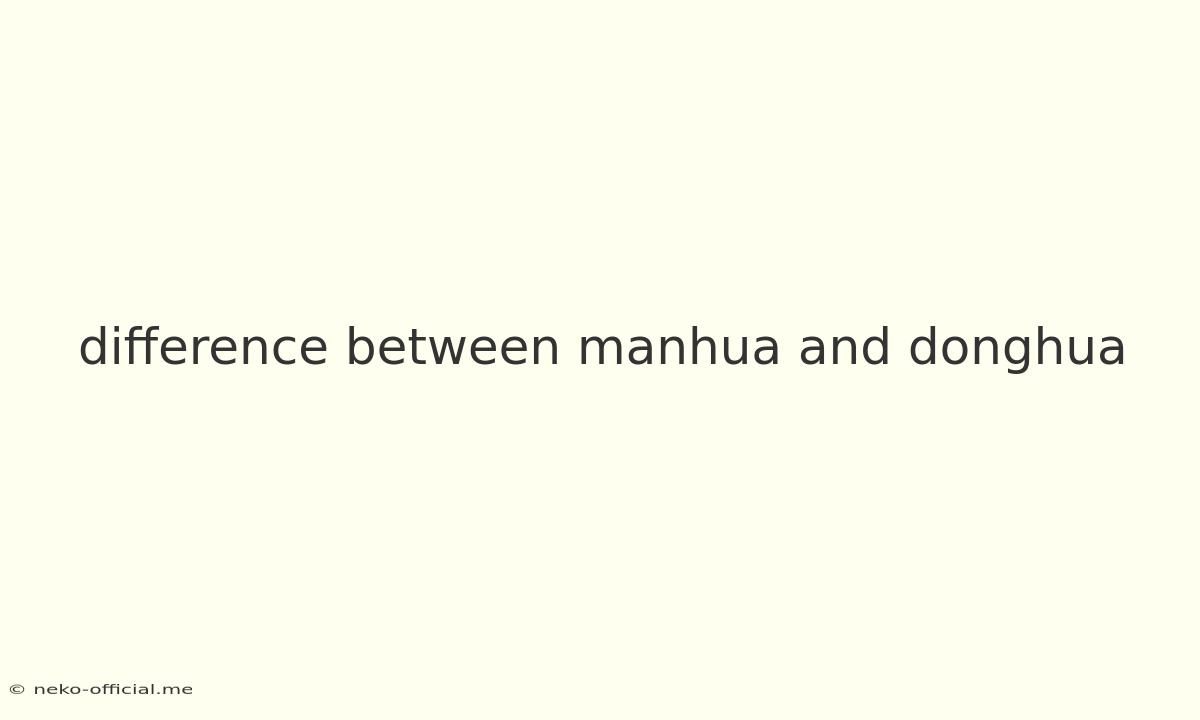The Difference Between Manhua and Donghua: Exploring Chinese Comics and Animation
When delving into the world of Chinese media, you might come across the terms manhua and donghua. While they sound similar, they represent distinct art forms with their own unique characteristics. This article will shed light on the differences between manhua and donghua.
What is Manhua?
Manhua is the term for Chinese comics, encompassing a wide variety of genres, storytelling styles, and artistic expressions. It's the Chinese equivalent of manga (Japanese comics) and manhwa (Korean comics).
Key Characteristics of Manhua:
- Visual Storytelling: Manhua relies heavily on visuals to convey narratives, often utilizing intricate artwork, dynamic panel layouts, and captivating character designs.
- Diverse Genres: From historical dramas to fantasy adventures, manhua encompasses a vast array of genres, catering to a diverse audience.
- Originality and Cultural Influences: Manhua frequently incorporates elements of Chinese folklore, mythology, and history, creating unique and engaging stories.
What is Donghua?
Donghua refers to Chinese animation. It's a vibrant and growing industry, producing both traditional 2D and modern 3D animation, covering various genres and catering to diverse age groups.
Key Characteristics of Donghua:
- Motion Pictures: Unlike manhua, donghua brings stories to life through animation, adding movement, sound, and special effects to enhance the visual experience.
- Diverse Animation Styles: Donghua encompasses a wide range of animation styles, from traditional hand-drawn to advanced CGI, providing a diverse visual spectrum.
- Cultural Significance: Donghua often incorporates Chinese cultural themes, mythology, and history, showcasing the rich tapestry of Chinese heritage.
The Connection Between Manhua and Donghua:
While manhua and donghua are distinct art forms, they often share a symbiotic relationship. Many popular manhua titles have been adapted into donghua series, introducing their stories to a wider audience and further expanding the reach of Chinese media.
Examples of Manhua Adaptations into Donghua:
- The King's Avatar: A popular manhua about a professional gamer turned virtual reality player was adapted into a successful donghua series.
- Mo Dao Zu Shi: A webcomic with a captivating plot and complex characters was adapted into a highly acclaimed donghua, gaining global popularity.
Conclusion:
Manhua and donghua are integral parts of the Chinese media landscape, offering a captivating blend of storytelling, artistry, and cultural influence. By understanding their individual characteristics and their interrelation, you can gain a deeper appreciation for the diverse and vibrant world of Chinese comics and animation.
